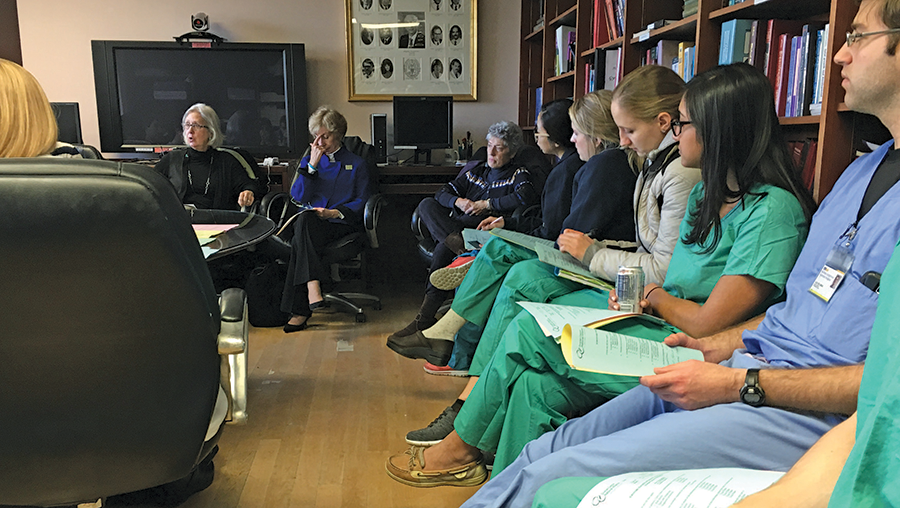Cancer survivors offer medical lessons through personal stories
On a short drive to the grocery store, Stacy had to pull over and find a bathroom. The frequent urination had grown from bad to worse, and now the busy 55-year-old found she could hardly get her errands done, let alone her job and caring for her family.
She figured this was just the worst urinary tract infection she’d ever faced, and called her longtime OB/GYN for help. Rather than prescribe an antibiotic over the phone, he told her to come in. Stressed by the competing demands of a busy life, it was difficult for Stacy to make time for an in-person visit. But she did, and when she got there, her caring physician took time to ask a lot of questions.
“I’m exhausted,” she told him. Once she stopped to think about it, she began to list a series of physical changes that she had recently experienced and dismissed, chalking them up to stress or the mystery of menopause. She had dull abdominal pain, constipation, pain during sex, and frequent urination. How frequent? To her frustration, she could no longer play more than four holes of golf without needing a bathroom break.
The doctor listened with patience and concern. This sounded like more than a nagging UTI.
He scheduled an internal ultrasound that revealed a small ovarian cyst. It needed to be removed, he explained. The surgery was scheduled quickly, and when she met with the surgeon a few days later, the vocabulary had changed.
“He said the tumor needed to come out immediately,” recalls Stacy. “Apparently it was no longer a cyst!”
The surgery confirmed that she had Stage III-C ovarian cancer. She had a hysterectomy and had a portion of her diaphragm removed, plus a port inserted for chemotherapy infusions. Stacy endured 17 weeks of treatment, and today is a grateful survivor of ovarian cancer.
“My OB/GYN is my hero,” she says. “Had my doctor just prescribed the antibiotic like I’d asked…,” she pauses and takes a deep breath. “He did the right thing and called me in.”
Stacy shared her story with 20 Georgetown medical students through Survivors Teaching Students, a program organized by the Ovarian Cancer National Alliance. Three women present their personal cases to the third-year students during their OB/GYN rotation. The organization hopes to educate future physicians in all specialties and change the old idea that ovarian cancer is the “silent killer” without recognized symptoms.
Current research points to symptoms that can be confused with common conditions of menopausal women— bloating, pelvic or abdominal pain, difficulty eating or feeling full quickly, and urinary symptoms such as urgency or frequency. Other symptoms include fatigue, indigestion, back pain, pain with intercourse, constipation, and menstrual irregularities.
The survivors share stories of some health care providers who did things right, but of others who overlooked problems or misdiagnosed symptoms as fibroids or gastrointestinal issues.
“My only symptom was dull pain that grew worse over four years,” said Lynn, another survivor whose doctor had more of a wait-and-see approach that ended up delaying diagnosis until she was at Stage III-C. “Ovarian cancer patients look healthy. I’m here because I don’t want this to happen to more people and you guys are key.”
The program concluded with a short Q&A, and gratitude.
“Thank you for coming to speak with us,” said one student. “I’ve read about this but meeting you and hearing your personal stories makes it stick.”

